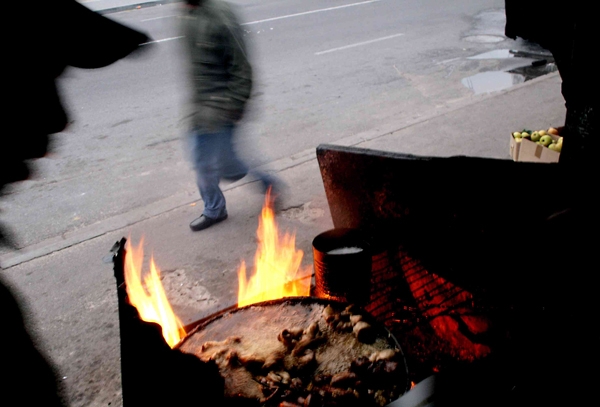

Thirteen million people in South Africa suffer from hunger, says an Oxfam report. Photo by Masixole Feni.
16 October 2014
One in four South Africans suffers from hunger on a regular basis, according to an Oxfam report released ahead of World Food Day, October 16.
That amounts to 13 million hungry people, despite the fact that South Africa is a ‘food secure’ nation that produces enough food to sufficiently feed all of its citizens.
Additionally, more than half the population has been found to be at risk of going hungry or already hungry. These statistics are based off of the 2013 South African National Health and Nutrition Examination Survey (SANHANES).
The report identifies several factors related to food insecurity and hunger, including low income and unemployment, gender inequality, and rising food prices.
In rural areas, lack of access to land, water, tools, and information commonly prevents households from growing enough food. Additionally, the report finds that the food industry has contributed to food insecurity, as a few food retailers control most of the market and largely drive availability, price, and quality of food consumption.
Inequalities in food consumption were found to be very large. Women are significantly more likely than men to have insufficient food supply, lack food funds, and to cut or skip meals. Income inequality also plays a prominent role— in terms of spending value, the top 10% of households spend over three times as much per household as the bottom 25% on average.
According to the report, unemployed urban poor, landless rural poor and unemployed youth are “particularly vulnerable to food insecurity.”
Malnutrition is also identified as a major problem. The report states that in South Africa, there is “bad access to good food and good access to bad food.” Processed foods with low nutritional value are prevalent in both urban and rural areas, and unbalanced diets have led to obesity and stunting. In poorer communities, processed inferior-quality foods can be a much easier alternative to preparing healthier foods, given high prices of healthy ingredients and limited access to electricity.
With 13 million people living in hunger, Oxfam believes that previous food policy has not worked properly, and recommends that the government enact and properly implement a national Food Act to fight hunger and malnutrition.